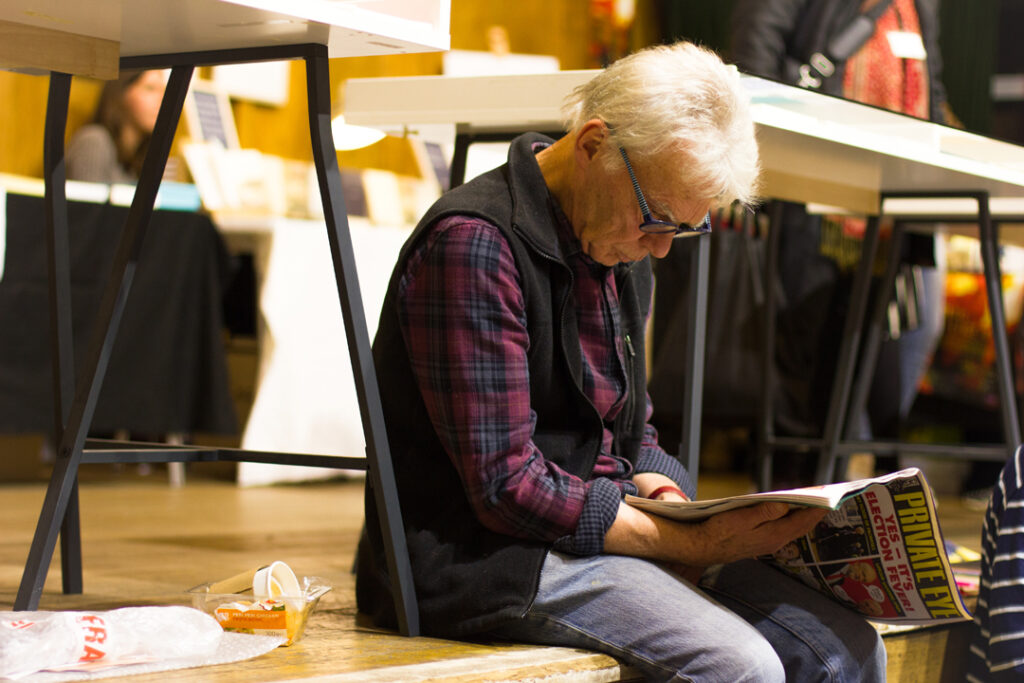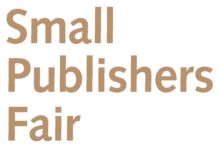Charles Boyle is a writer, editor and publisher. He founded CB Editions in 2007 and has published some seventy books. The first three poetry collections published by CBe all won the Aldeburgh First Collection prize and were all shortlisted for the Forward Prize. Here he writes about independent publishing.
‘Yes, we are all individuals!’ shouts the crowd in Life of Brian, after Brian has told them they are, and ‘Yes, we are all different!’ Pause, then a lone voice from the crowd: ‘I’m not . . .’ I know that voice. Given indie record labels and fashion labels, indie coffee shops and funeral parlours as well as bookshops, and given that the word ‘indie’ gets used as a marketing word, a selling word, I do sometimes want to curl up with a Costa coffee and a Penguin Classic.
The Penguin Classics series, now comprising around 2,000 titles, is one of the glories of English-language publishing. It is one example of what publishers with a lot of money can do and independent ones can’t, except on a much smaller scale. How much money? Let’s do this fast. In 2013 Penguin merged with Random House. Penguin Random House (itself owned by the German conglomerate Bertelsmann), had revenues of $1.9 billion in the second half of 2021, and is one of the Big Five of English-language publishing. The others are HarperCollins (owned by Rupert Murdoch’s News Corp), Simon & Schuster, Hachette and Macmillan (owned by the German media group Holtzbrinck). Together, these companies control around 80% of the English-language book market. Soon, the Five may come down to four, depending on the US Department of Justice’s current querying of the proposed merger of Penguin Random House and Simon & Schuster.
The same empire-building has played out in bookshops. James Daunt, who founded the Daunt Books chain of six shops in 1990, is now CEO of both Waterstones and the largest US chain of bookstores, Barnes & Noble, bought by Waterstones’ Bermuda-based parent company in 2019. Since the late 1990s, Waterstones’ acquisitions process in the UK has hoovered up Dillons, Ottakar’s, Books Etc, Foyles and Blackwell’s. Waterstones also own a number of non-branded shops that appear to retain their independent identity – second-best to choice, we the consumers do like the illusion of choice. We may even prefer it. Daunt has defended the Waterstones policy of ‘consolidation’ on the grounds that it is necessary to counteract the might of Amazon. This is Putinesque.
Over the past decade the accumulation of power in ever fewer hands has been accelerating. Does this matter? If so, does it matter not just to the quite few people, relative to the overall population, who actually buy books but also to everyone else?
All publishing is at base, before any literary judgements come into play, a social and therefore political activity. Yes we are all individuals and yes we are all different but we live with others, we muck in, and unless you are so rich that you can legally dodge your taxes and head down to your bunker when any trouble starts, all independence is relative. To get their books to the bookshops, most independent publishers use the same distribution networks as the others. For online selling, no independent publisher can avoid Amazon. Get money from the Arts Council, do, but there will be strings attached, as to all money. The most basic of which is: we all (unless we are penniless, or keep our cash under the mattress) use banks.
Change the system? Hard, because the system thrives on absorbing protest and resistance and selling those back in branded form. The makers of Life of Brian were a group of Oxbridge-educated white men whose careers were built on satirising an Establishment of which they were a part. So, given that there is no such place as outside the system, we tinker: hardly a rallying cry but see where those got us, and small adjustments can make big differences. One possible trigger for change may be the internal conflict between corporate culture and that of the on-the-whole left-leaning, progressive people who are drawn to work in publishing.

Given that the system is so encompassing, and that all independence is relative, what does it mean to be an ‘independent’ publisher? The publishers outside the Big Five are such a varied bunch that there cannot be a simple answer. To the extent that they ape the conglomerates, large independent publishers are independent only in the technical sense of not being owned by one of the conglomerates. At its best, independent publishing is nimble, inquisitive, resourceful (necessity being the mother of invention), personal, cooperative rather than competitive, passionately engaged and seriously, infectiously fun – all things to which small groups of like-minded people are conducive. Not corporations. And if you have written a book that is, let’s say, ‘innovative’ in its form or content, then that book is more likely to find a home with one of the smaller independent publishers. Risks are easier to take when you have little to lose. Large publishers, needing to cover high staff wages and overheads for their palaces before they even begin to make a profit, have effectively ruled themselves out of the market for the kind of books that I’m sure many of their editors would actually like to publish. They are not averse, of course, to picking up oddball titles whose initial publication by small presses has suggested that a potentially large readership for these books does exist.
The matrix: authors need publishers need readers. I’m thinking about myself aged around six choosing books from the council-funded mobile library that came round once a week to the village where I lived in Yorkshire; and later, browsing and buying books in a tiny shop in the Arndale Centre in Leeds. This is not – or not just – a nostalgia trip to a time when books were central to the culture in a way they are now not. A few weeks ago I looked up the Arndale Centre – now rebranded as Headingley Central – on the net: KFC, Costa, Greggs, Superdrug; no bookshop; five of the 35 units are vacant. Without independent readers the rest of us – publishers, authors, booksellers – are toast.
This is an edited extract from an essay to be published in a forthcoming issue of Poetry Birmingham Literary Journal edited by Nuzhat Bukhari.



